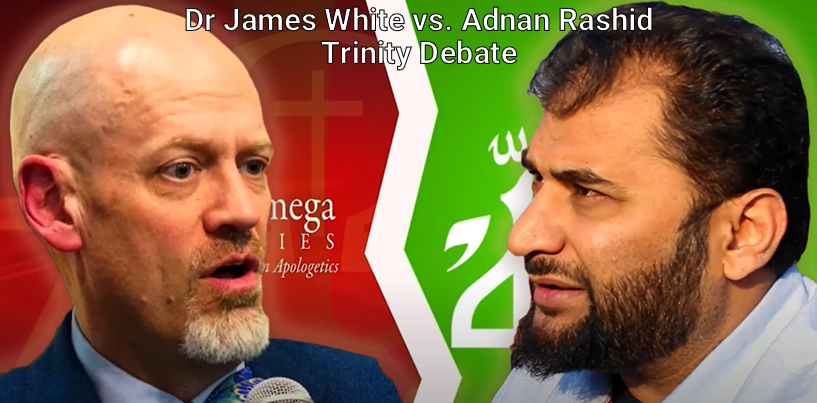Reflections on the Baptist Confession of Faith of 1689
23 Aug 14 began a perhaps unbroken, orderly, and personal journey through my favorite written confession of faith. These are my personal reflections on this beloved historic Particular Baptist confession of the Christian Faith.
NEXT-
Chapter 22. Of Religious Worship and the Sabbath Day. Paragraph 3: “Prayer, with thanksgiving, being one part of natural worship, is by God required of all men. But that it may be accepted, it is to be made in the name of the Son, by the help of the Spirit, according to his will; with understanding, reverence, humility, fervency, faith, love, and perseverance; and when with others, in a known tongue.”
Prayer is direct talk with God. It’s words expressed, even when done publicly, to God himself. Any member of the Trinity can be prayed to by name because of what it means to offer prayer in Jesus’ name as we’ll discuss here, but prayer typically addresses the Father as Jesus taught us. When Jesus taught his disciples to pray it included thanksgiving. Solid prayer should help us to remember that our lives are filled with blessings too numerous to count. Thanksgiving is always applicable.
Praying “in Jesus’ name” or “in the name of the Son” as they say here is far more than just a tag line we use. Praying in Jesus’ name actually makes prayer to God possible. Prayers spoken by a saint in Jesus’ name are prayers that’ll be answered because of Jesus’ place. Prayers in the name of anything or anyone else are rejected by God excepting what may be called, “Prayers of repentance” or “First prayers.” Being “born again” is the only way to pray “in Jesus’ name.” It’s therefore a great family privilege even just to pray acceptably.
I believe that prayer is a go or no-go based on relationship. “…The effective prayer of a righteous man can accomplish much.” James 5:16b. Why does God hear anyone? Who is righteous like this? Whose prayers can actually heal? Understanding how it is that we’re made righteous is everything to the power of our prayers. God invites prayers. He wants us to pray always and make our requests known to him. That God truly hears (and even delights in) the prayers of his children is a sweet biblical reality. What I mean by “hears” here is not that God is just aware of someone’s prayers or not, but that the prayers offered by his own are different. They’re actually “heard.” Two Proverbs come to mind: 1) “The sacrifice of the wicked is an abomination to the Lord, but the prayer of the upright is His delight.” Proverbs 15:8. And 2) “He who turns away his ear from listening to the law, even his prayer is an abomination.” Proverbs 28:9. God delights in the prayers of his covenant people, but the prayers of those outside of covenant(s) with him (Old and now New) are an abomination to him. The jurisdiction of sin in your life is the dividing factor between you, your prayers and God even down to the individual level. Isaiah said to the hypocritical of God’s previous covenant people, “Your iniquities have made a separation between you and your God, And your sins have hidden His face from you so that He does not hear.” Isaiah 59:2. Even God’s covenant people could negate his hearing their prayers for a time by their sin. The promises of covenant come in large picture truths, but each of us are accountable to God.
Israel was made righteous because God chose them. He made promises to Abraham and his descendants because he wanted to redeem his elect and this was a part of that. He gave them circumcision. He gave them the tabernacle. He gave them the city of Jerusalem with David and the temple, like the ark, represented it all for them. It was God’s faithfulness to them, credited to them in advance because of the bigger picture of what Jesus would later do, that made them righteous. He heard many of them because he’d called them. It is because of that same reckoned righteousness that began in Genesis 15:6 that God heard the prayers of the truly righteous in Israel throughout their days. It was the covenant that gave rise to the temple, and it was toward the temple they prayed to God and were actually heard by God. 2 Chronicles 6:14 & 21. God gave Israel her righteousness (he was it) and like a fire among them it kept those warm who drew near to it. It’s the same today in Jesus for the world.
New Covenant counterparts to this show that Christ actually makes our works and prayers acceptable to God by accepting us into his fold. Works are actually sin outside of Jesus as we all go astray and become futile. Romans 3:9-18. How else are things in our lives made “acceptable” to God (in those 1 Peter 2:5; Romans 12:1; 14:18; 15:16 ways) except that all our works are redeemed by Jesus when he redeems us? He literally redeems us from futility and dead works. In Jesus, Scripture not only speaks of our works being made acceptable to God by Jesus, but that in fact we were born again by him in order to do the works: Ephesians 2:10. Cf. Titus 3:8, 1 John 2:3 & James 2:17. Hebrews 12:28 speaks of “acceptable” (NASB) service we offer to God in Christ. Jesus’ propitiation makes our works work. He makes us profitable in that spiritual sense. Our works carry reward in Christ.
Sadly, not all are God’s children. We’re all creatures created in God’s image, yes, but God’s “children” are adopted by him by love and grace. Today, children are in real time adopted in Jesus the Christ through the truths of the Gospel, regeneration and justification. Prayer is heard by God from one’s position in life, therefore. What I mean is that they’re heard or not based on sonship. And God knows those who are his. 2 Timothy 2:19. There are only two categories of people we see given today—sons of God or sons of Satan. God “hears” the prayers of his sons, not Satan’s. What God hears outside of Jesus in his many loving works to still-fallen mankind are his own prerogative. We don’t play there too long. We’re not God. What we want is people to pray everything in Jesus’ name meaning as people saved by Jesus.
Prayers are always aided by God the Holy Spirit. “…the Spirit also helps our weakness; for we do not know how to pray as we should, but the Spirit Himself intercedes for us with groanings too deep for words.” Romans 8:26. Perhaps some of my best praying is done when I don’t have the right words, but only the truly sincere desires of my heart laid out before God! The groans of God within me. God intercedes with us when we pray. We know this by the next verse: “…and He who searches the hearts knows what the mind of the Spirit is, because He intercedes for the saints according to the will of God.” What a wonderful reality to rest on in prayer! Wonderful! God intercedes with our prayers in his perfect will. We then live to prove what that is. Prayer is about aligning oneself as a witness to God’s truth and works. And we always pray in Jesus’ name in hopes that our requests are God’s will indeed. We demand nothing from God! We ask though and can grow in the sureties of what we ask for and why. We should request everything with thanksgiving knowing that God’s purposes are being worked out in the world.
I don’t know the charismatic tone of the days of the author’s of this confession. God bless my more charismatic brothers! They prohibit here any idea of corporate prayer including some idea of prayer languages. I personally am certain of the biblical gift of tongues. That is of actual language miracles done in believers for unbelievers. God can do this today. This is reported. I do not, however, at all affirm the idea of gibberish private prayer languages. That is simply un-biblical. “Known tongues” is all we see in prayer from God’s people from Genesis to Revelation and so their admonition here about prayer in public practice or “with others” in known tongues is always applicable in God’s churches.








Leave a Reply